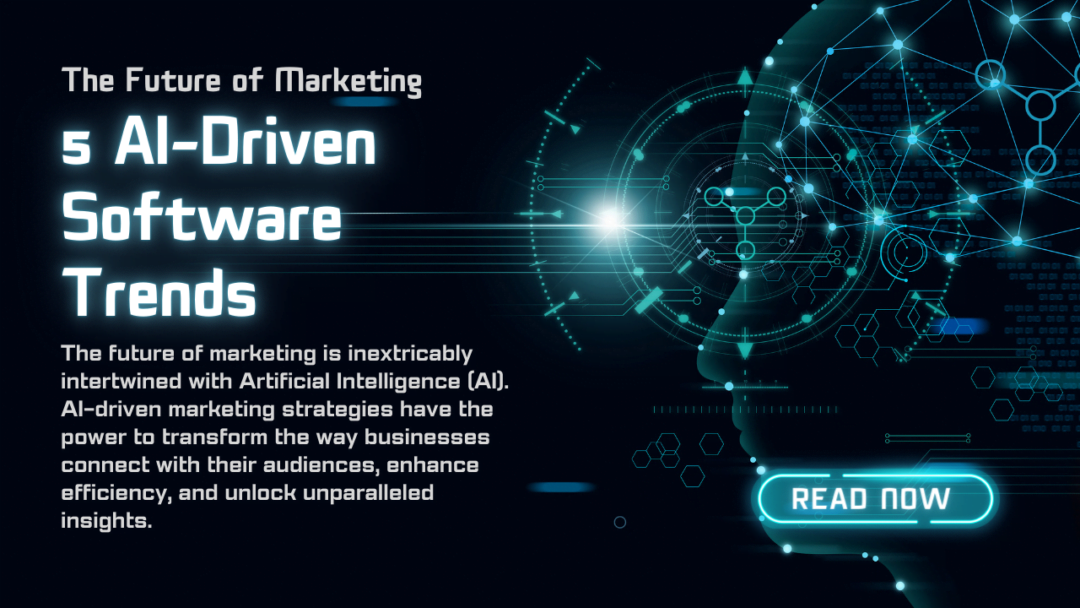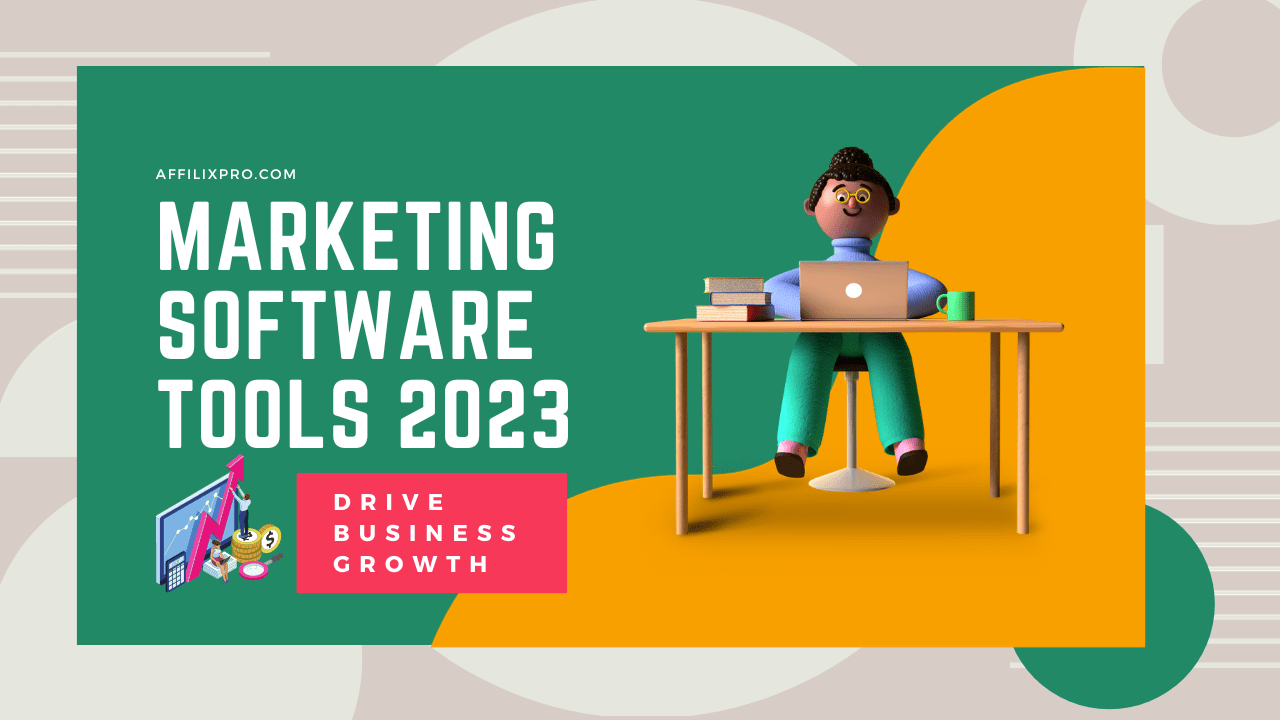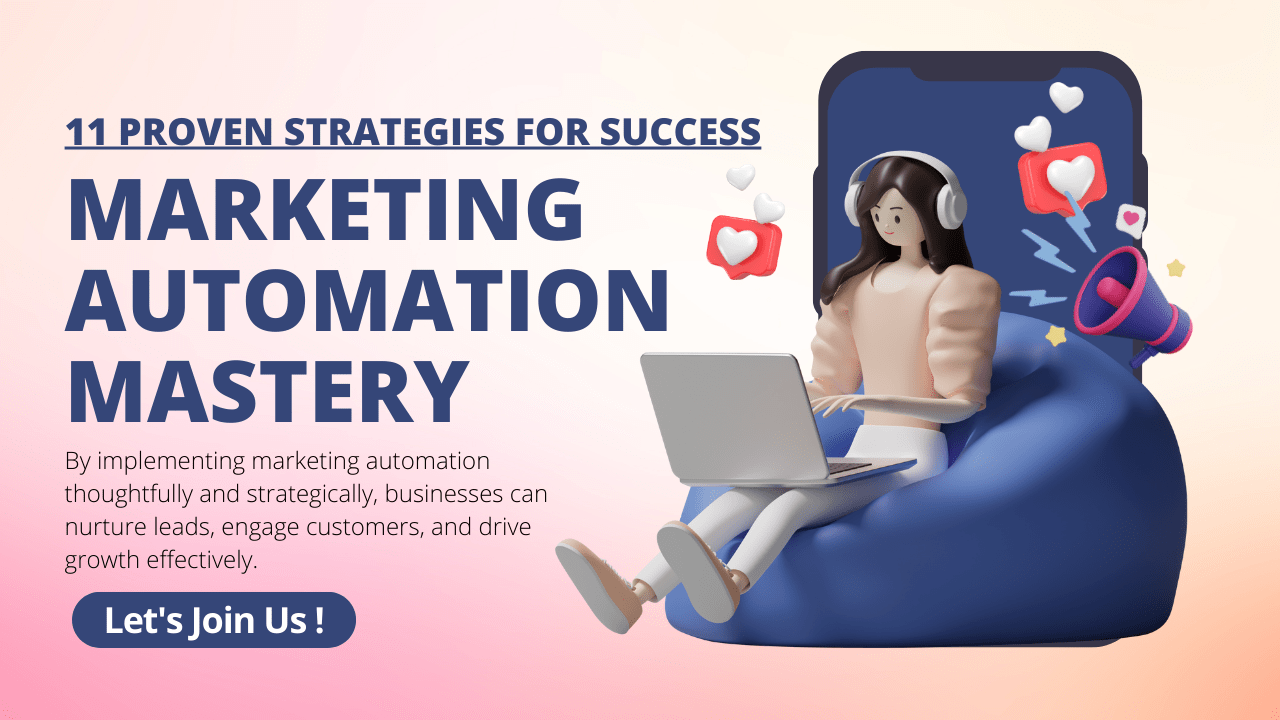5 AI-Driven Software Trends: The Future of Marketing
The world of marketing is undergoing a monumental transformation, and at the heart of this revolution is the advent of Artificial Intelligence (AI). In this blog post, we will embark on a captivating journey to explore the future of marketing, delving deep into the remarkable impact of AI-driven software trends. As technology continues to advance, marketing is becoming increasingly sophisticated, and AI is emerging as a game-changer.
Picture a marketing landscape where businesses engage with their audience in ways that were once considered science fiction. AI empowers marketers to decode consumer behavior, anticipate needs, and create personalized experiences that were previously unimaginable. It’s not just about reaching your audience; it’s about doing so in a way that resonates on a personal level, forging lasting connections.
The Power of AI-Driven Software in Marketing
Artificial Intelligence is no longer confined to the realm of science fiction; it’s here, and it’s transforming how businesses operate. AI has become the driving force behind innovative marketing strategies, a digital compass guiding marketers through the complexities of a data-driven world.
But what does this mean for businesses? It means the ability to analyze vast datasets in real-time, extract meaningful insights, and adapt marketing strategies on the fly. It means predicting customer behavior, automating routine tasks, and making data-backed decisions. In essence, AI is redefining the way brands connect with their audiences, and marketers are seizing the opportunity with both hands.
Why AI Matters
The significance of AI in marketing cannot be overstated. It’s not merely a buzzword or a passing trend; it’s a pivotal moment in the evolution of marketing. It’s the intersection of human creativity and machine intelligence, where innovation knows no bounds. It’s about staying ahead in a fiercely competitive marketplace and delivering on the promise of creating a brand that truly understands its customers.
As we delve deeper into this blog post, we will uncover the various facets of AI in marketing, from its transformative role to the practical steps of implementing AI in your marketing strategy. We will explore AI-driven software trends that are shaping the industry, and the incredible benefits that AI can bring to your marketing efforts. However, it’s also essential to recognize the challenges and ethical considerations that come with this transformative journey.
The future of marketing is no longer a distant concept; it’s here and now. The question isn’t whether AI will play a part in your marketing strategy; it’s how you will harness its potential to stand out in a world of constant change and innovation. So, let’s embark on this journey together, as we uncover the untapped potential and possibilities that AI offers in shaping the future of marketing.

The Role of AI in Marketing
Artificial Intelligence (AI) plays a pivotal role that extends far beyond mere automation. It has become the bedrock of innovative marketing strategies, fundamentally transforming the way businesses connect with their audiences. Here, we’ll delve into the multifaceted role of AI in marketing, illuminating its significance and practical applications.
1. Understanding Consumer Behavior
AI equips marketers with a formidable tool – the ability to understand consumer behavior at a granular level. By analyzing copious amounts of data, AI identifies patterns, preferences, and buying habits, enabling marketers to tailor their strategies accordingly. It’s akin to having a crystal ball that foretells customer desires, allowing for highly targeted and relevant campaigns.
2. Personalization at Scale
One of the most remarkable aspects of AI is its capacity for personalized marketing at scale. Through AI, brands can deliver content, recommendations, and offers that resonate with individual customers. Whether it’s an e-commerce platform suggesting products based on past purchases or a streaming service curating content preferences, AI ensures that each customer feels uniquely catered to.
3. Predictive Analytics
Predictive analytics is a game-changer in marketing. AI-powered predictive models forecast future trends, enabling marketers to make data-driven decisions. Whether it’s predicting which products will trend next season or foreseeing shifts in consumer sentiment, AI arms marketers with the foresight to stay ahead of the competition.
4. Marketing Automation
Automation is a fundamental aspect of AI’s role in marketing. AI-driven marketing automation tools handle routine and time-consuming tasks, freeing up marketers to focus on creativity and strategy. From email marketing campaigns to social media posts, AI ensures that routine operations run smoothly and efficiently.
5. Data-Driven Insights
The marketing landscape is inundated with data, and AI helps extract meaningful insights from this information overload. It identifies key metrics, interprets consumer feedback, and provides actionable recommendations. In doing so, AI empowers marketers to refine their strategies and make data-backed decisions.
6. Enhanced Customer Engagement
AI goes beyond mere transactions; it fosters genuine engagement. Chatbots, for instance, offer immediate responses and assistance, improving customer experiences. Virtual assistants guide customers through their purchasing journey, offering a human-like interaction that builds trust and loyalty.
7. Competitive Advantage
In the fiercely competitive world of marketing, AI offers a distinct advantage. Brands that harness AI effectively gain an edge in their ability to adapt and evolve. They can pivot quickly, respond to market changes, and stay relevant in an ever-shifting landscape.
8. Cost Efficiency
AI not only enhances marketing effectiveness but also optimizes cost-efficiency. With automated processes and data-driven strategies, businesses can allocate resources more judiciously, reducing waste and increasing ROI.
9. Scalability
Scalability is a hallmark of AI in marketing. Whether you’re a small startup or a multinational corporation, AI solutions can be tailored to meet your specific needs. It grows with your business, adapting to the scale and complexity of your operations.
10. Real-Time Decision-Making
AI enables real-time decision-making. Marketers can respond to customer interactions and market fluctuations with agility. Whether adjusting pricing, content, or ad spend, real-time insights empower businesses to stay on the cutting edge.
The role of AI in marketing is nothing short of transformative. It empowers marketers to understand, engage, and predict with unprecedented accuracy. It streamlines operations, reduces costs, and provides a significant competitive advantage. Embracing AI is not a choice but a necessity for businesses aspiring to thrive in the dynamic world of marketing. In the subsequent sections of this blog post, we will delve into how to implement AI in your marketing strategy, the benefits it brings, and the challenges that need to be navigated.

AI-Driven Software Trends
The AI revolution in marketing isn’t static; it’s an ever-evolving landscape with new software trends emerging constantly. In this section, we will explore the latest and most influential AI-driven software trends that are shaping the marketing industry.
1. Chatbots and Virtual Assistants
Chatbots and virtual assistants are no longer limited to providing basic information. They’ve evolved into sophisticated tools that engage customers in meaningful conversations. These AI-driven entities can answer queries, guide users through websites, and even execute transactions. Their 24/7 availability ensures exceptional customer service, while their ability to collect data helps in refining marketing strategies.
2. Predictive Analytics
Predictive analytics is the crystal ball of marketing. AI algorithms analyze historical data to forecast future trends, customer behavior, and market fluctuations. This trend enables marketers to make proactive, data-driven decisions, optimize resources, and deliver highly targeted campaigns that resonate with their audience.
3. Content Generation
AI is also making inroads into content creation. AI-powered tools can generate human-like text, automating tasks such as writing product descriptions, generating social media posts, and even creating personalized email content. This not only saves time but ensures consistency and quality in content delivery.
4. Voice Search Optimization
The rise of voice-activated devices has led to a surge in voice search. Optimizing for voice search is a crucial trend in AI-driven marketing. Businesses are adapting their SEO strategies to match conversational search queries, allowing them to stay relevant in this rapidly growing segment.
5. Augmented Reality (AR) and Virtual Reality (VR)
AR and VR technologies are redefining customer engagement. Brands are using AR to offer immersive experiences, such as trying on virtual clothes or visualizing furniture in their own homes. VR, on the other hand, transports customers to virtual showrooms or destinations. These technologies create a strong emotional connection and provide a unique way to interact with products and services.
6. Marketing Automation
Marketing automation tools continue to evolve. AI-driven marketing automation streamlines marketing processes, ensuring consistent and personalized communication with customers. These tools help in lead nurturing, lead scoring, and customer segmentation, resulting in more effective marketing campaigns.
7. Data Security and Privacy
As AI plays a more substantial role in marketing, data security and privacy are paramount. With the collection and analysis of vast amounts of customer data, businesses must ensure compliance with data protection regulations and build trust by safeguarding sensitive information. Implementing robust data security measures and transparent data policies is a growing trend.
Incorporating these AI-driven software trends into your marketing strategy is essential to stay competitive and relevant in the fast-paced world of marketing. However, it’s equally important to recognize that while AI presents opportunities, it also brings challenges. In the following sections, we will explore the benefits of AI in marketing and address the considerations and potential hurdles you may encounter when implementing these trends.

Implementing AI in Your Marketing Strategy
Implementing AI in your marketing strategy is a pivotal step towards staying competitive and embracing the future of marketing. AI-driven solutions can revolutionize the way you interact with your audience, automate tasks, and make data-driven decisions. In this section, we will outline the practical steps to effectively integrate AI into your marketing strategy.
1. Data Integration: The Foundation of AI
Data is the lifeblood of AI in marketing. To start, you need to integrate AI with your data analytics. Centralize your data from various sources, such as your website, social media platforms, CRM, and customer feedback. This unified data source becomes the fuel for AI algorithms to analyze, providing valuable insights.
2. Invest in AI-Powered Tools
Investing in AI-powered marketing automation tools is essential. These tools come in various forms, from email marketing platforms to customer segmentation and recommendation engines. Choose tools that align with your marketing goals and business size. These AI tools can handle repetitive tasks, from sending personalized emails to segmenting your audience, allowing your team to focus on higher-level strategies.
3. Personalization: Creating Tailored Experiences
AI excels at personalization. Use AI to tailor content, product recommendations, and offers to individual customer preferences. Consider implementing recommendation engines that suggest products or content based on a user’s past behavior. Personalization not only enhances customer engagement but also increases conversion rates and customer satisfaction.
4. Predictive Analytics: Anticipate Customer Behavior
Implement predictive analytics to anticipate customer behavior. These AI algorithms analyze historical data to predict future trends and consumer preferences. This helps you make informed decisions about product launches, marketing campaigns, and resource allocation. It’s like having a roadmap to navigate your marketing journey.
5. A/B Testing and Optimization
AI can also improve A/B testing. Utilize AI to analyze the results of your tests, identify trends, and recommend changes to optimize your marketing efforts. This iterative process helps you continually refine your strategies for maximum impact.
6. Customer Journey Mapping
Use AI to map the customer journey. AI can analyze touchpoints across various channels and provide insights into the most effective paths customers take before making a purchase. This understanding allows you to create more targeted and efficient marketing campaigns.
7. Marketing Analytics Dashboards
Leverage AI-driven marketing analytics dashboards. These tools provide real-time data and actionable insights. They visualize the performance of your marketing efforts, making it easier to track key performance indicators and adapt your strategy accordingly.
8. Natural Language Processing (NLP)
NLP is a powerful tool for understanding and engaging with your audience. AI-driven chatbots and sentiment analysis tools use NLP to interpret customer inquiries and feedback. This technology enables personalized responses and a better understanding of customer sentiment.
9. Continuous Learning and Adaptation
AI in marketing is not a one-time implementation; it’s an ongoing journey. The algorithms and models need to be continuously updated and refined to stay effective. Stay abreast of industry trends and ensure your team is equipped with the knowledge and skills to adapt to the evolving landscape.
10. Compliance and Ethical Considerations
Lastly, remember to consider ethical and compliance issues. As you collect and use customer data, adhere to data protection regulations and best practices. Build trust with your audience by transparently handling their data and respecting their privacy.
Implementing AI in your marketing strategy is a transformative endeavor. It allows you to harness the power of data and automation, enabling more targeted and efficient marketing efforts. By following these steps and staying adaptable, you can unlock the full potential of AI in your marketing strategy, staying at the forefront of the ever-evolving marketing landscape.

The Benefits of AI-Driven Marketing
The integration of AI into your marketing strategy brings a multitude of benefits that can have a profound impact on your business’s success. In this section, we will explore these advantages and shed light on how AI-driven marketing can transform your approach and results.
1. Enhanced Customer Engagement
AI-driven marketing enables businesses to engage with their customers on a deeper level. Through personalization, chatbots, and recommendation engines, you can create tailored experiences that resonate with individual preferences. This not only increases customer satisfaction but also fosters stronger relationships with your audience.
2. Improved Efficiency
Automation is a cornerstone of AI in marketing. Mundane and time-consuming tasks, such as data analysis, email marketing, and social media posting, can be automated, allowing your marketing team to focus on more creative and strategic aspects. This not only saves time but also optimizes resource allocation.
3. Highly Targeted Campaigns
AI’s ability to analyze vast amounts of data allows for highly targeted campaigns. By understanding customer behavior, AI can help you create marketing strategies that resonate with specific customer segments. This precision results in better conversion rates and increased ROI.
4. Real-Time Decision-Making
AI provides real-time insights that empower marketers to make quick and informed decisions. Whether adjusting ad spend, fine-tuning a campaign, or responding to customer interactions, AI ensures that your marketing strategies remain agile and responsive to market dynamics.
5. Scalability
AI solutions are scalable, making them suitable for businesses of all sizes. Whether you’re a small startup or a multinational corporation, AI can adapt to the scale and complexity of your operations, ensuring that your marketing efforts grow in tandem with your business.
6. Cost Efficiency
By automating tasks and improving targeting, AI reduces costs associated with marketing. It optimizes the allocation of resources and minimizes waste, ultimately leading to a more cost-effective marketing strategy.
7. Competitive Advantage
Businesses that effectively harness AI gain a significant competitive edge. They can pivot quickly, respond to market changes, and stay ahead of their competitors. AI enables you to anticipate customer needs and provide solutions before your competitors do.
8. Data-Driven Decision-Making
AI-driven marketing is based on data-driven decisions. It takes the guesswork out of marketing by using data to shape strategies and refine campaigns. This data-driven approach not only increases the effectiveness of your marketing but also ensures that your efforts are aligned with your business goals.
9. 24/7 Availability
AI-driven chatbots and virtual assistants are available around the clock, offering immediate assistance to customers. This availability not only enhances customer service but also caters to a global audience in different time zones.
10. Better ROI
Ultimately, the combination of enhanced customer engagement, efficiency, and precise targeting leads to a better return on investment (ROI). AI-driven marketing ensures that your marketing budget is spent where it matters most, maximizing the impact of your campaigns.
11. Adapting to Evolving Trends
AI can adapt to evolving marketing trends and customer behaviors. It is designed to learn and adjust in real-time, ensuring your marketing strategies stay relevant as the marketing landscape shifts.
12. Continuous Improvement
AI systems learn and improve over time. As they collect more data and insights, they become more effective in understanding customer behavior and optimizing marketing strategies.
The benefits of AI-driven marketing are numerous and significant. From enhancing customer engagement to improving efficiency, increasing ROI, and providing a competitive edge, AI has the potential to revolutionize your marketing efforts. By embracing AI in your marketing strategy, you can unlock these advantages and position your business for success in an ever-evolving marketplace.

Challenges and Considerations
While the adoption of AI in marketing offers numerous benefits, it also comes with its share of challenges and considerations. It’s essential to be aware of these potential hurdles and address them effectively to make the most of AI in your marketing strategy.
1. Data Privacy and Security
As AI relies heavily on data, ensuring the privacy and security of customer information is paramount. Data breaches and misuse can lead to trust erosion and legal consequences. Implement robust data protection measures and comply with data privacy regulations like GDPR to safeguard customer data.
2. Ethical Concerns
AI can raise ethical dilemmas, particularly in areas like data collection, personalization, and the potential for algorithmic bias. It’s crucial to establish ethical guidelines and regularly audit AI algorithms to ensure they align with your brand’s values and adhere to ethical standards.
3. Learning Curve
Implementing AI may require your marketing team to acquire new skills. The learning curve can be steep, and it’s essential to invest in training and education to ensure your team can effectively manage AI-driven tools and strategies.
4. Initial Costs
The initial costs of implementing AI can be significant, especially for small businesses. However, the long-term benefits often outweigh these initial expenses. Consider your budget and weigh the cost against the potential ROI when implementing AI.
5. Integration Challenges
Integrating AI into existing marketing systems and processes can be challenging. Compatibility issues may arise, requiring careful planning and technical expertise to ensure a smooth transition.
6. Data Quality
AI depends on high-quality data. Inaccurate or incomplete data can lead to misguided insights and poor decisions. Maintaining data quality is an ongoing process, and it’s essential to have data quality control mechanisms in place.
7. Transparency and Explainability
AI algorithms can be complex, making it challenging to explain why certain decisions are made. Lack of transparency can lead to distrust from customers and regulatory bodies. Work on creating transparency in your AI processes and make efforts to explain the rationale behind AI-driven decisions.
8. Overreliance on AI
While AI can automate and optimize many tasks, it’s crucial not to become overly dependent on it. Human creativity, intuition, and understanding of the broader context are irreplaceable. Balance the use of AI with human expertise to ensure a holistic marketing strategy.
9. Data Overload
AI generates vast amounts of data, and managing and interpreting this data can be overwhelming. Establish clear goals and KPIs for your AI-driven marketing efforts to focus on the most relevant data and avoid drowning in unnecessary information.
10. Rapid Technological Changes
The field of AI is evolving rapidly, and what’s cutting-edge today may become outdated tomorrow. Stay updated on the latest trends and be prepared to adapt your AI strategies to incorporate new technologies as they emerge.
11. Customer Acceptance
Some customers may be hesitant about the use of AI in marketing, particularly with concerns about privacy and data security. It’s crucial to communicate transparently about how you use AI and the measures you take to protect their data and respect their privacy.
Addressing these challenges and considerations is essential for a successful implementation of AI in your marketing strategy. By being proactive in managing these aspects, you can harness the power of AI while building trust with your audience and navigating the complex ethical and technological landscape effectively.
Conclusion
The future of marketing is inextricably intertwined with Artificial Intelligence (AI). AI-driven marketing strategies have the power to transform the way businesses connect with their audiences, enhance efficiency, and unlock unparalleled insights. By embracing AI, you can create more personalized, efficient, and data-driven marketing campaigns that resonate with your customers and deliver outstanding results.
Key Takeaways
- AI Transforms Marketing: AI is no longer a futuristic concept; it’s reshaping the marketing landscape today, offering personalized experiences, automation, and data-driven decision-making.
- Implementing AI: To leverage AI effectively, centralize your data, invest in AI-powered tools, and focus on personalization, predictive analytics, and automation.
- Benefits of AI: AI-driven marketing enhances customer engagement, improves efficiency, provides real-time insights, and offers scalability, among other benefits.
- Challenges and Considerations: Address data privacy, ethical concerns, and transparency. Invest in training, manage initial costs, and avoid overreliance on AI.
- Continuous Adaptation: AI and marketing trends evolve rapidly. Stay updated and adaptable to remain competitive and relevant.
FAQs
1. What is AI-driven marketing?
AI-driven marketing refers to the use of Artificial Intelligence technologies to optimize marketing strategies, enhance customer engagement, and make data-driven decisions. It includes personalization, automation, and predictive analytics.
2. How can AI improve customer engagement?
AI improves customer engagement through personalization, chatbots, virtual assistants, and recommendation engines. It tailors content and interactions to individual preferences, creating more meaningful customer experiences.
3. What challenges does AI in marketing pose for businesses?
Challenges include data privacy and security, ethical concerns, the learning curve for teams, initial costs, data quality, and integration difficulties. Staying transparent and avoiding overreliance on AI are also important.
4. Is AI in marketing suitable for small businesses?
Yes, AI can benefit small businesses by enhancing efficiency and improving targeting. While there may be initial costs and a learning curve, the long-term benefits often outweigh these challenges.
5. How can businesses stay updated on AI trends in marketing?
Staying updated requires continuous learning and adaptation. It’s essential to follow industry news, attend relevant conferences and workshops, and invest in training for your marketing team to keep abreast of the latest AI trends and technologies.
Photo by Pexels
















